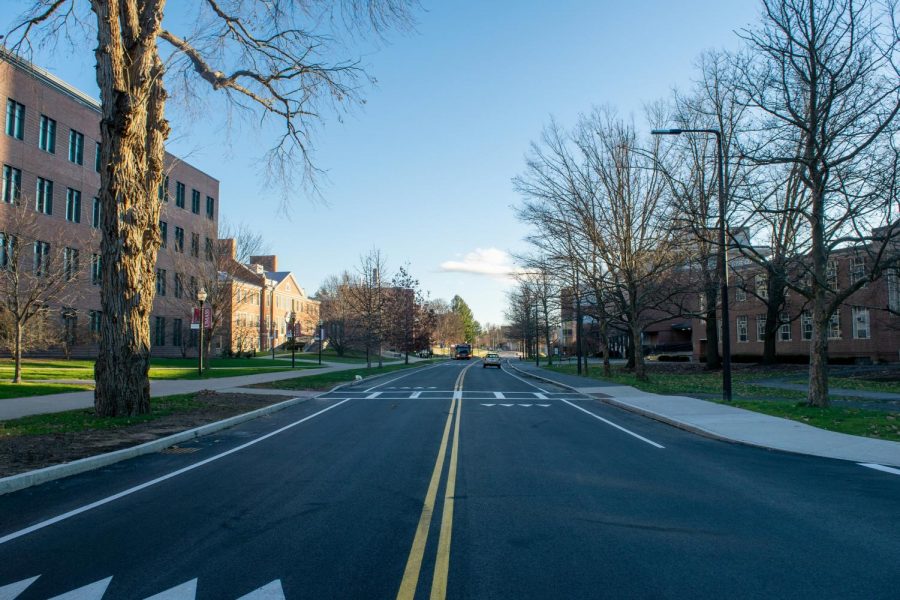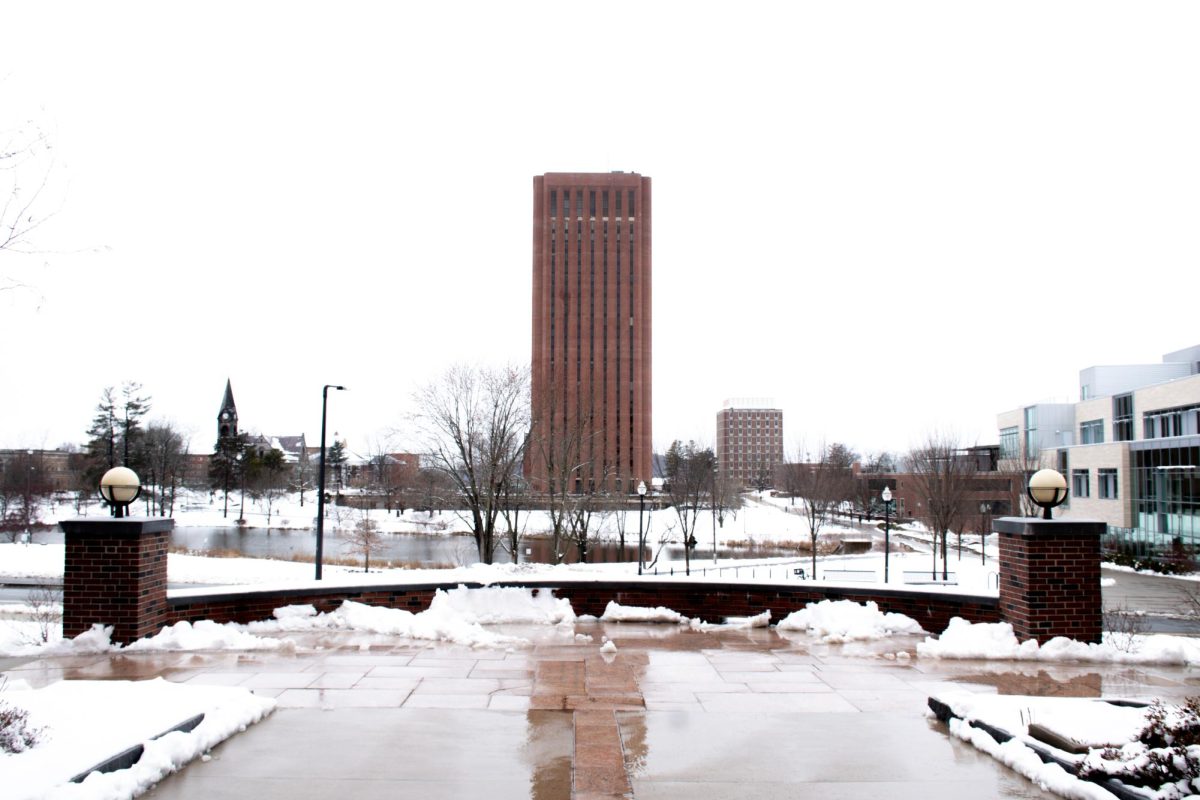The past two weeks at the University of Massachusetts have been defined by chaos and confusion, but one thing that is entirely clear is that the University was not prepared to bring students back this spring. As positive coronavirus cases rose in the early days of February, affecting not only the school but also the surrounding communities, UMass was quick to act. Unfortunately, its actions were mainly performative and did little to address the root cause of the spread.
The original rules for students during the “high risk” posture were to stay in dorms or places of residence and leave only for food, medical appointments and testing. Even masked, solo outdoor exercise was banned, though this particular restriction was lifted early. UMass apparently expected that over 5,000 undergraduate students, exhausted from months of living during a pandemic, would willingly adhere to these rules even if the school neglected to enforce them.
That’s not how it played out. Confined to buildings that were lightly monitored only during certain hours, students — as reported by the Daily Collegian — gathered inside, mingled between floors and generally did what they liked without consequence.
In recent days, much has come out about the state of the school and how it has been handling health and safety among its on-campus students. The outlook is grim. Residential staff have been overwhelmed with responsibility and increasingly been made aware of their lack of power.
Students are required to get tested regularly, but when someone receives a positive result, the school often neglects to move them to quarantine housing for many days. Once there, students are in the dark and do not have their basic needs met.
UMass forced graduate students and their families living in Southwest apartments to relocate with barely 24 hours’ notice so that their residences could be turned into quarantine housing, without informing them they might need to ahead of time.
The school imposed the lockdown for a minimum of 14 days but did not share possible plans of action past that. What if cases stayed the same or rose even higher? How long would students be kept on campus, restricted to single-room residences? What conditions would warrant depopulating campus? What kind of positive trend would trigger a phased reopening?
In a letter to the campus community, Chancellor Kumble Subbaswamy wrote that the administration planned for the possibility of a sharp rise in cases. He also wrote that “in all we do, the health and well-being” of students, faculty and staff are of “paramount concern.”
Was it health and well-being that was in mind when administration ordered students not to engage in solo outdoor exercise, an activity that is unlikely to spread the coronavirus? Was that the deciding factor in banning students from working their off-campus jobs that pay their rent?
What about the family that had hours to move across campus to an unfamiliar space with a child and an elder in tow? Or the students who arrived in quarantine housing and were not given food for up to 24 hours?
Lockdown rules were not made with the health and well-being of the campus community in mind. UMass simply chose what they could most easily enforce.
While the administration was botching its COVID-19 response, student leaders came through with strict but compassionate policy demands.
The Student Government Association ensured those with on-campus jobs continued to receive pay for their scheduled shifts during the self-sequester period and demanded the school allow students employed off-campus to work.
It was student government that spoke out about the sudden removal of graduate students from their residences. It was the Resident Assistant/Peer Mentor Union that foresaw the disaster and advocated for preventive measures, such as increased dorm security and proper attention to sick and exposed students.
This is an incredibly difficult time to be an administrator. Few people would like to be responsible for maintaining a school of any size right now, let alone the third largest in the state with a reputation as a party school. Despite these challenges, wouldn’t anyone in this position whose top concern was truly health and well-being turn first to evidence-based tactics?
In Subbaswamy’s letter to the campus community, he wrote that many COVID-19 cases were the result of undergraduate students gathering in small group settings and disregarding masking and social distancing protocols. Why then were dorms left largely unmonitored while the university cracked down hard on students employed off-campus in jobs where they would be held to strict masking and distancing? Why was one of the safest activities possible — solo, masked outdoor exercise — curtailed for days?
UMass’ coronavirus response was performative, a desperate show of strength in an attempt to appear in control. Its focus on punitive measures while putting only meager resources into preventive work is an administrative failure.
Not only is this response disappointing and embarrassing, it is damaging to the relationship between administration, students and staff, as well as between the school and surrounding community. It is illustrative of bureaucratic values and a patronizing view of the young adults who are trying to gain a sense of self-respect, autonomy and professional ethics.
Like so many institutions in America, it shows a system of self-interest, denial of facts, discrimination and blatant disregard for long-term community wellness.
The remainder of the spring semester will likely bring many more challenges. There will be additional opportunities for students and administration alike to think deeply about their actions and their consequences. Next time, UMass must act differently. It must operate with complete transparency and communicate promptly. It must listen to and cooperate with student leaders whose advice throughout these fraught weeks has been in tune with the basic needs of the school community and has shown significantly more compassion than that of the administration.
Lily Robinson can be reached at [email protected].



















